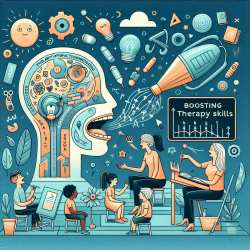Understanding the Link Between Childhood Psychotic Experiences and School Performance
As a speech-language pathologist, understanding the multifaceted nature of childhood development is crucial. A recent study titled Psychotic experiences and future school performance in childhood: a population-based cohort study sheds light on an often-overlooked aspect of child development: the impact of psychotic experiences on school performance.
The Study at a Glance
Conducted as part of the Generation R Study, this research involved 2,362 children and examined the relationship between self-reported psychotic experiences at age 10 and school performance at age 12. The study adjusted for various factors including sociodemographic characteristics, maternal IQ, and other co-occurring psychopathologies.
Key Findings
The study revealed significant findings:
- Children with psychotic experiences scored lower on standardized school performance tests.
- These children also showed poorer language and mathematical abilities.
- The association persisted even after adjusting for intelligence and other psychopathologies, except for attention problems.
Implications for Practitioners
For practitioners, these findings highlight the importance of early identification and intervention. Here’s how you can apply this knowledge:
- Early Screening: Incorporate screening for psychotic experiences in routine assessments to identify at-risk children early.
- Collaborative Approach: Work closely with educators and psychologists to develop comprehensive intervention plans that address both educational and mental health needs.
- Focus on Attention: Given the role of attention problems, consider integrating strategies that improve attention and concentration in your therapy sessions.
Encouraging Further Research
The study’s findings also open avenues for further research. Practitioners are encouraged to explore:
- The long-term educational outcomes of children with psychotic experiences.
- The effectiveness of targeted interventions in improving school performance.
- The role of other cognitive and environmental factors in mediating these associations.
Conclusion
Understanding the link between psychotic experiences and school performance is crucial for developing effective interventions. By leveraging these insights, practitioners can better support children in achieving their full potential.
To read the original research paper, please follow this link: Psychotic experiences and future school performance in childhood: a population-based cohort study.










